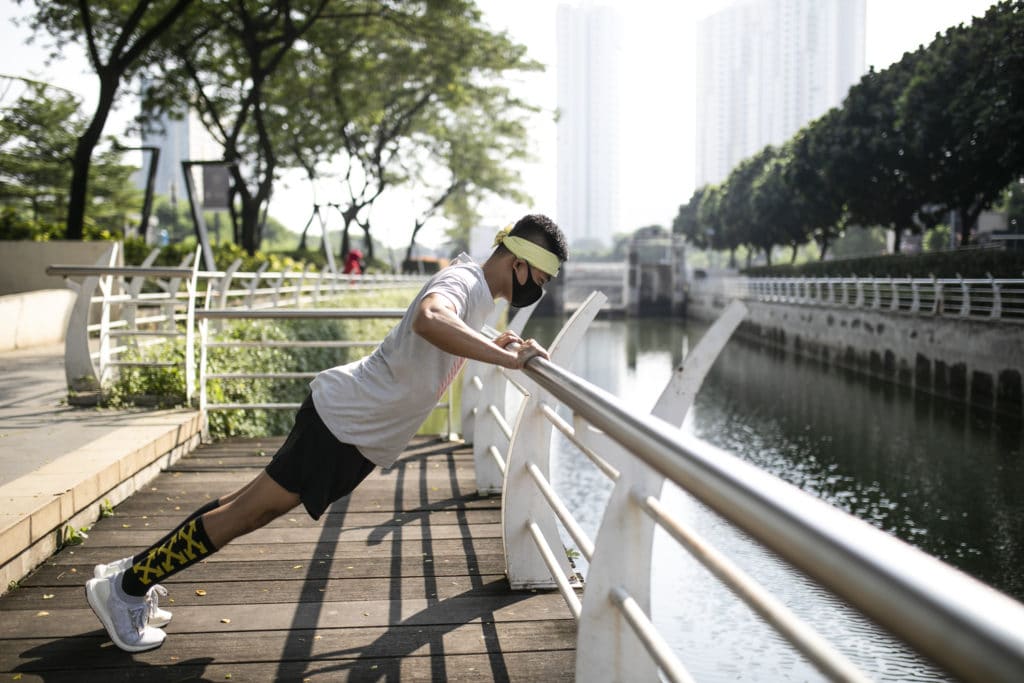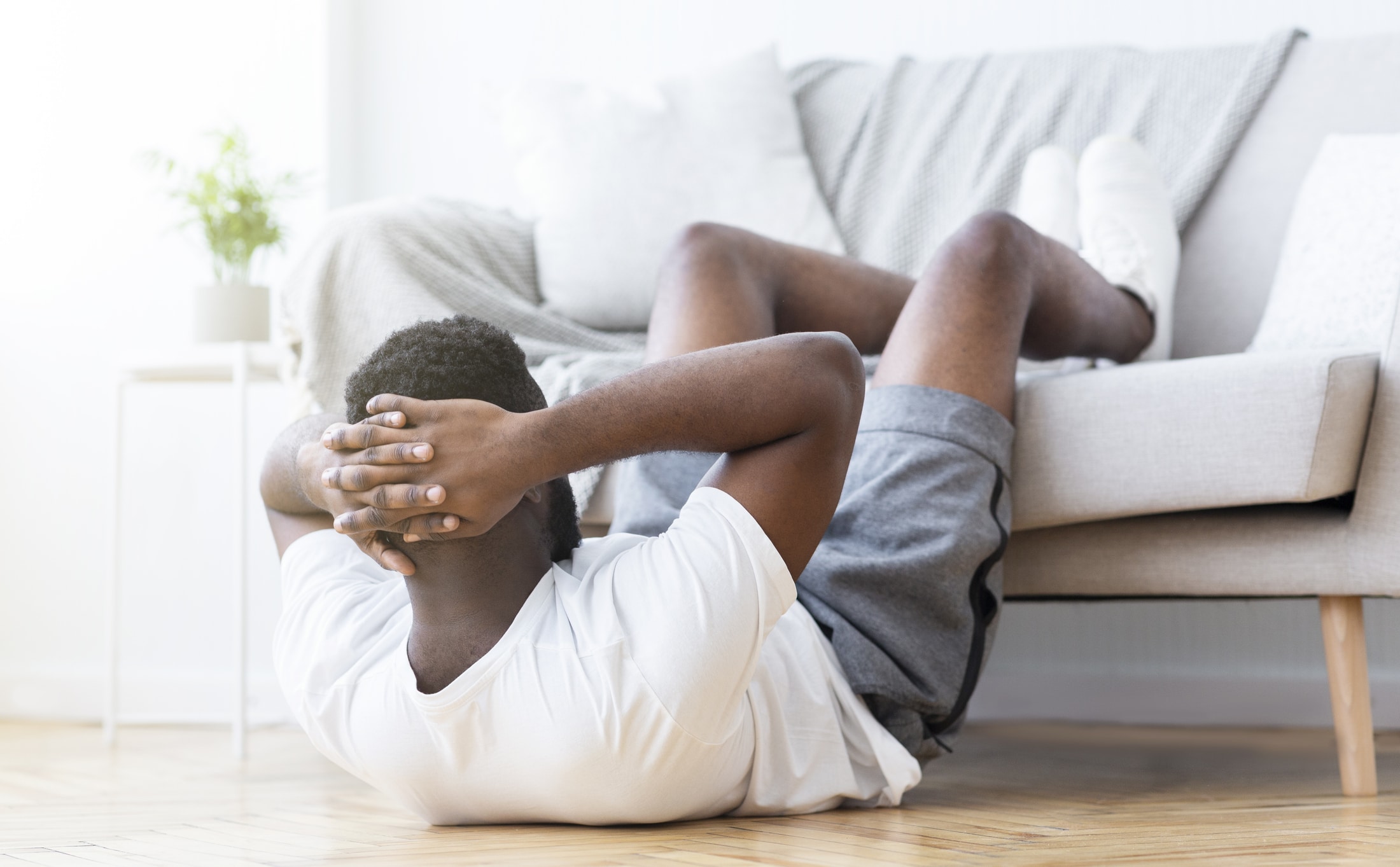It is more important than ever to keep up with a regular fitness regime as the pandemic continues to affect our “normal” routines.
Why is Exercise Important
Consistent exercise combats many health conditions and diseases, improves respiratory capacity and heart strength, controls weight, improves mood, boosts energy, and improves sleep. Exercise is even known to have significant emotional benefits including reducing symptoms of anxiety, depression, and cumulative stress. Maintaining a moderate-intensity, consistent movement routine helps sustain overall health and wellbeing. The general guidelines recommended by international health associations is a minimum of 150 minutes of exercise at moderate intensity levels each week.

Tips to maintain a routine:
- Do the type of exercise you enjoy. It doesn’t have to be anything in particular. If you don’t like burpees, you don’t have to do them! Do what moves you.
- Find a type of movement activity that you can sustain regularly, and reach out to a fitness professional if you need personalized guidance.
- Write it in your calendar and block it off just like you would a meeting. It’s less about motivation when you set a time to do it.
- Stick to a regular schedule so you know when you’ll work out each day and what type of workout you’re doing. Create a schedule that works for your lifestyle and work schedule.
- Set boundaries with yourself to finish work at a certain time to make sure you treat yourself to your movement practice. Set boundaries with your family, kids, roommates to know not to bother you when you’re exercising. If you’re working out at home, set up a designated exercise space. When you are in that corner of the living room your mindset is ready for exercise and housemates know not to disrupt your practice.
- Adapt your gym routine to outside.
- Reach out to a movement professional for help. If you’re used to working out in a gym, the body needs time to adapt to running outside versus on the treadmill or lifting water bottles instead of weights.
- Look for virtual offerings. Most Instructors or studios you used to go to before the pandemic are continuing normal class schedules online and will appreciate the business. Group classes and privates are still available.
- Make sure to get enough rest. It’s still important to get enough sleep, recovery days and mobility days after hard workouts. This includes drinking enough water, eating appropriately and stretching for recovery.
- Integrate movement throughout your daily schedule.
- Set timers throughout the day to signal when it’s time to stand up and move. Look away from the screen, focus on a few deep breaths, stretch your neck, reach your arms overhead, stand up and pace around your desk, take regular stretch breaks. This is more important now especially as we continue to work from home.
- Don’t multitask. When you’re working out it is your time away from any other things that need to get done around the house. Take the time for you.
What Counts as Exercise?

Remember that anything counts!
It is more important to combat our sedentary lifestyles that we’ve naturally adopted, whether it is by choice (unmotivated, not sure how to exercise) or by necessity (jobs, online work). As we all work from home we’re sitting more now than ever. One hour of training doesn’t make much of a difference if it is the only time we are out of our chairs. We must actively resist the lack of movement throughout each day.
If it seems daunting to set aside a full hour to workout, try to incorporate small bouts of movement throughout each day.
It may sound silly, but anything is better than nothing. Even a few minutes of walking farther across the parking lot, taking stairs instead of the elevator, doing active chores, standing up during work breaks to march in place, walking around during phone meetings, or finding an active hobby. Even walking or biking to do errands or pick up a coffee instead of driving is an easy way to get in a few extra steps during the day.
Exercise doesn’t need to be as daunting as most people think

It doesn’t mean trudging along on a treadmill for 60 minutes every day at 6am, unless that’s what you like to do. Exercise can encompass any type of movement practice beyond simply getting in a good pump for a sculpted physique and toned muscles. It is about creating a healthy lifestyle, and is vital for mental and physical wellbeing. You can still schedule an hour to run, do yoga, or lift weights, but it’s just a small factor of the overarching movement spectrum that we’re missing in our sedentary lifestyles and newly widespread work from home culture.
Bottom line
Involve a consistent flow of natural movements throughout each day.
Exercise is medicine! It needs to be personalized in the type of movement, intensity, duration, and frequency that works for you. Similar to any prescription, you need to have the right dose for yourself.
Simply put, saturate your day with movement. Resist the lack of movement in our current culture in whatever way works for you. Integrate movement throughout your day.

Davita Paul, MS, CES, NCPT
Corrective exercise specialist/Movement educator/Pilates instructor
MS in Kinesiology specializing in orthopedic rehabilitation corrective exercise. She focuses on chronic pain relief and improving physical and mental wellness through integrated movement modalities. Also the Director of Pilates at the Brentwood Country Club, founder of DavitaPilates, and created the Ergonomics in Motion system.


